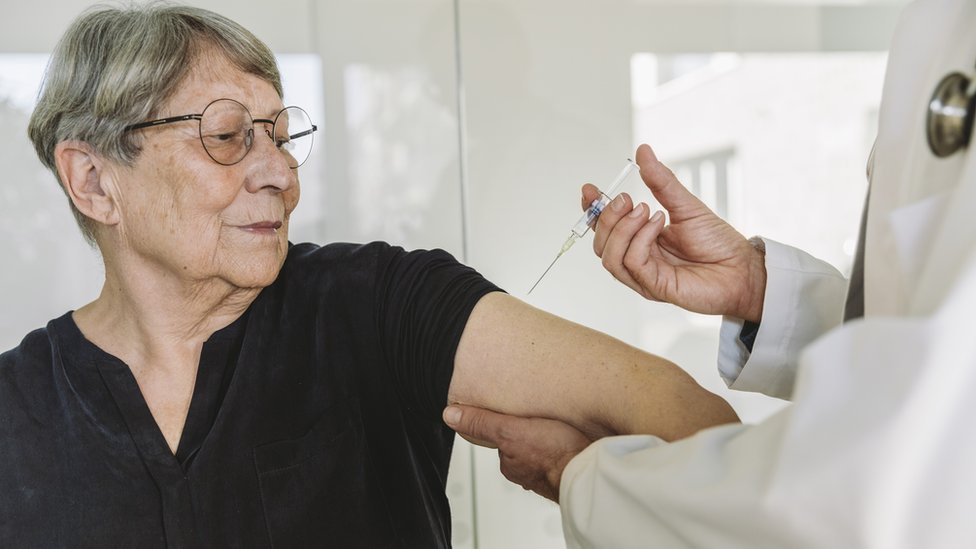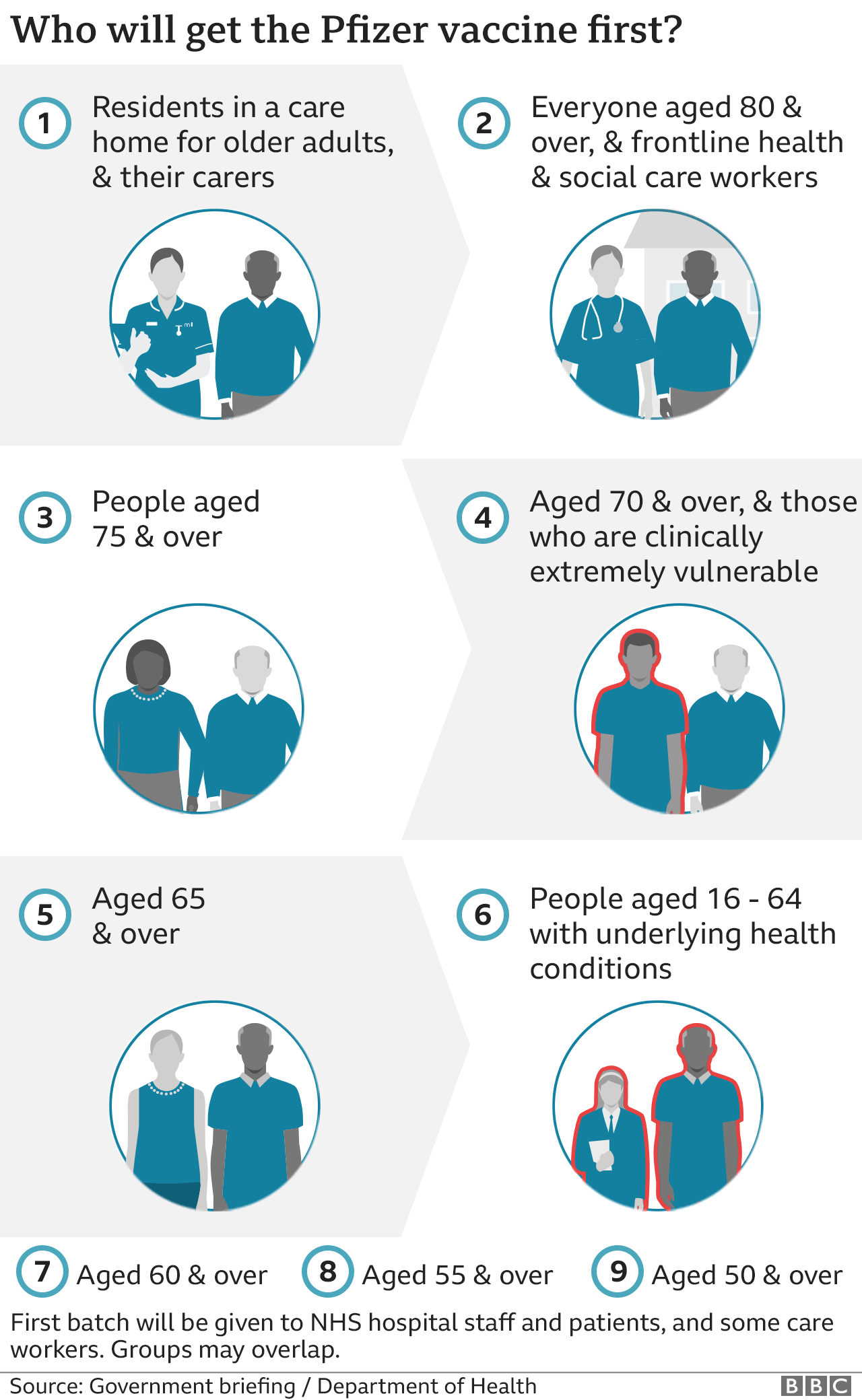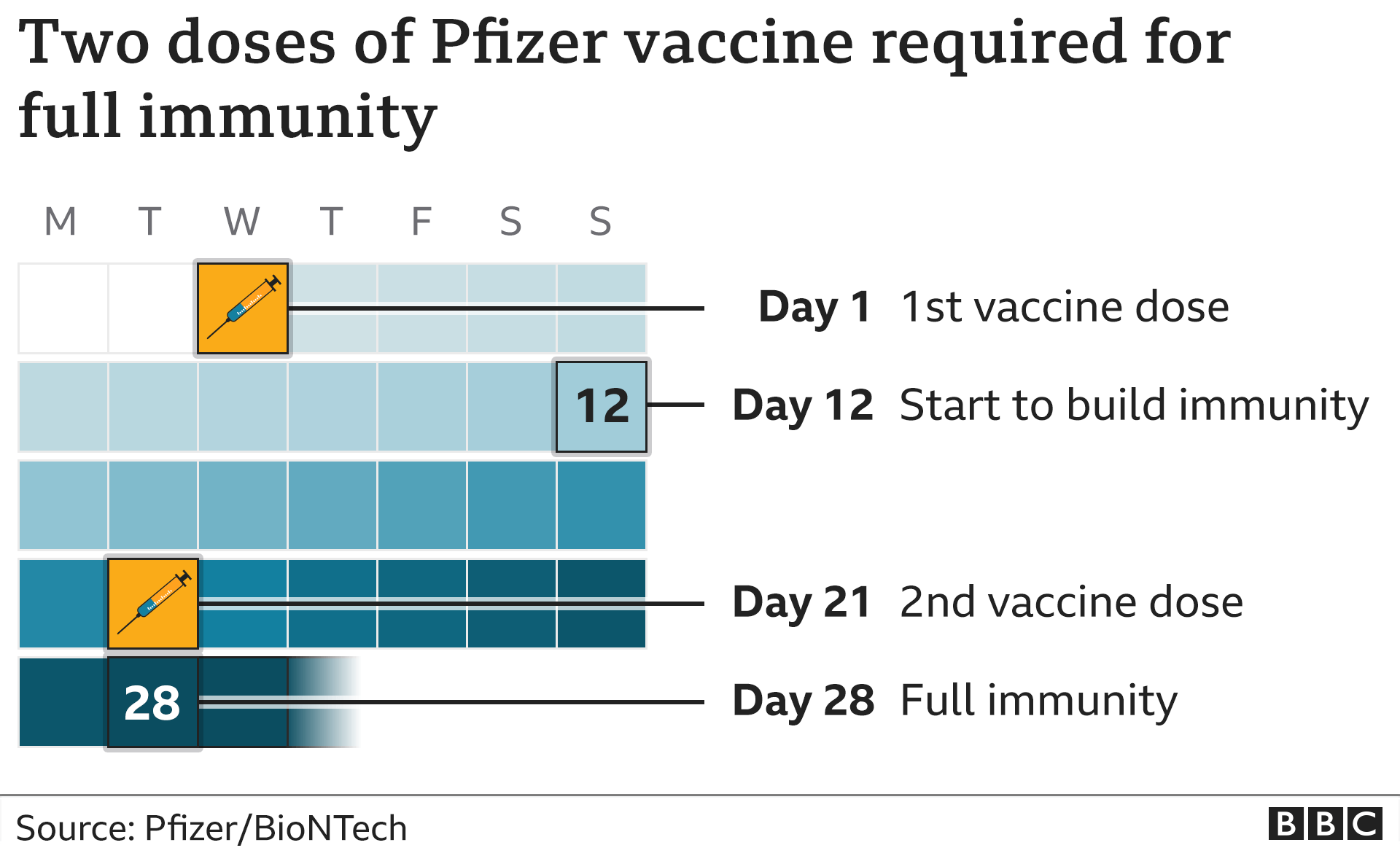
Up to 99% of Covid-19 hospitalisations and deaths could be avoided with the first wave of vaccinations, England's deputy chief medical officer Prof Jonathan Van-Tam has said.
Speaking to BBC News, he said that would be possible if everyone on the first priority list took the vaccine and it was highly effective.
He said it was key to go "as fast" and at the "highest volume" as possible.
But he acknowledged there would need to be some flexibility in the list.
On Wednesday the UK became the first country in the world to approve the Pfizer/BioNTech vaccine for use.
The BBC understands that some of the first delivery of the Pfizer vaccine is travelling via the Eurotunnel to the UK on Thursday.
Prof Van-Tam, who was taking viewers' questions on the BBC News channel and Radio 5 Live, said that due to technical issues around the vaccine - particularly the need to store it at very low temperatures - it would be difficult to take the vaccine to individual people's homes.
The order in which people will get the jab is recommended by the Joint Committee on Vaccination and Immunisation (JCVI) and decided by the government.
Elderly people in care homes and care home staff have been placed top of the priority list, followed by over-80s and health and care staff.
But because hospitals already have the facilities to store the vaccine at -70C, as required, the very first vaccinations are likely to take place there - for care home staff, NHS staff and patients - so none of the vaccine risks being wasted.
Prof Van-Tam told BBC News: "If we can get through phase one [of the priority list] and it is a highly effective vaccine and there is very, very high up take, then we could in theory take out 99% of hospitalisations and deaths related to Covid 19.
"That is why the phase one list is what is, that is the primary ambition."

Prof Van-Tam said the government would need to make further decisions on how to continue with the second part of the programme, while reviewing how the vaccine performs in the coming months.
Meanwhile, Prof Anthony Harnden, deputy chairman of the JCVI, said patience was required over the rollout of the Pfizer vaccine.
Prof Harnden said the JCVI's "clear remit was to decide on prioritisation groups" but it always understood "there were going to be vaccine product storage, transport and administration constraints".
"We have advised in our statement that there is flexibility at an approach to this list according to what was actually feasible and logistical on the ground, so this is not wholly unexpected - but the clear list that we have drawn out is a list of priority in terms of vulnerability," he told BBC Radio 4's Today programme.
Care homes 'utmost priority'
Prof Harnden said he understood delays in delivering the vaccine to care homes would be disappointing for residents and their families.
But he added: "I think just a very small degree of patience is required because I think we are at the forefront here in the UK.
"I think the very short-term practical difficulties of getting this out from a storage point of view should not let us all lose sight of the fact that these care home residents and their staff are our utmost priority - and it may well be possible to get the care home staff to be immunised within a local hospital setting," he said.


The Pfizer/BioNTech vaccine offers up to 95% protection against Covid-19.
The UK has already ordered 40 million doses - enough to vaccinate 20 million people.
These will be rolled out as quickly as they can be made by Pfizer in Belgium, with the first load next week and then "several millions" throughout December, Health Secretary Matt Hancock has said.
But the bulk of the roll-out across the UK will be next year.
And it could take until April for all those most at-risk to receive the new vaccine, according to NHS England chief executive Sir Simon Stevens.
https://news.google.com/__i/rss/rd/articles/CBMiKmh0dHBzOi8vd3d3LmJiYy5jby51ay9uZXdzL2hlYWx0aC01NTE2OTc5OdIBLmh0dHBzOi8vd3d3LmJiYy5jby51ay9uZXdzL2FtcC9oZWFsdGgtNTUxNjk3OTk?oc=5
2020-12-03 12:34:00Z
52781224257079
Tidak ada komentar:
Posting Komentar